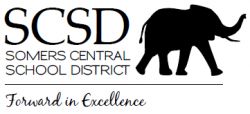Christopher Orzech '19
|
Title: Genetic Markers for Alzheimer's Disease: A Principal Component Analysis and Functional Interpretation of Genetic Data Differing between Alzheimer's patients and controls
Problem: There is no known cause of Alzheimer's disease (AD) or any cure for it. A lack of biomarkers also halts any effort to understand the progression or origin of this disease, and subsequently the development of effective medications. My research sought to identify or rule out a gene in the peripheral blood gene expressions of humans as being a possible separating factor in computer simulations when comparing a population containing both AD patients and healthy individuals, under which circumstance, said-gene could be studied in its biological pathways and already serve the missing role of a diagnostic measure. As it turned out, AD's pathology remains elusive, and diagnostic factors are yet to be found. Activities & Interests: Has a strong passion for medicine, nature, and art/music. Plays guitar, piano, and is learning to be better at vocals. Will be attending Hunter College of the CUNY for undergraduate studies, and plans to become a surgeon in the military. Member of the National Honor Society (NHS) and National Technical Honor Society (NTHS), as well as a graduate of an honors medical program, New Visions Health, at the Putnam-Northern Westchester BOCES. |
|
Abstract:
Alzheimer’s disease (AD) is the most common neurodegenerative disease resulting in cumulative cognition impairments over time. The emotional impact this has on a patient and those they are close with can be heartbreaking, as memory eventually withers to the extent where facial recognition is compromised. There is no cure for AD or any other neurodegenerative disease, as these conditions cause irreversible destruction of brain tissue, meaning that the most
efficient way to combat the disease is possibly by identifying its likelihood ahead of its manifestation, and finding ways to stop or at least slow down the progression of the condition. There has been an up-trend in numerous studies addressing the possibility of biomarkers of Alzheimer’s disease in recent decades. Research in two categories of this field are growing:
genetic and blood biomarkers. Alongside the increasingly more rapid and continual advancement of computer technology over the last couple decades, bioinformatics research capabilities have been growing at a fast rate, and new approaches are being developed for pathology and genetics research enabling scientists to investigate in new ways. In this study we seek to incorporate the use of computers and bioinformatics programs and their programming languages for the execution of hardware-intensive operations on raw genetic data to potentially find biomarkers of AD.
Alzheimer’s disease (AD) is the most common neurodegenerative disease resulting in cumulative cognition impairments over time. The emotional impact this has on a patient and those they are close with can be heartbreaking, as memory eventually withers to the extent where facial recognition is compromised. There is no cure for AD or any other neurodegenerative disease, as these conditions cause irreversible destruction of brain tissue, meaning that the most
efficient way to combat the disease is possibly by identifying its likelihood ahead of its manifestation, and finding ways to stop or at least slow down the progression of the condition. There has been an up-trend in numerous studies addressing the possibility of biomarkers of Alzheimer’s disease in recent decades. Research in two categories of this field are growing:
genetic and blood biomarkers. Alongside the increasingly more rapid and continual advancement of computer technology over the last couple decades, bioinformatics research capabilities have been growing at a fast rate, and new approaches are being developed for pathology and genetics research enabling scientists to investigate in new ways. In this study we seek to incorporate the use of computers and bioinformatics programs and their programming languages for the execution of hardware-intensive operations on raw genetic data to potentially find biomarkers of AD.


